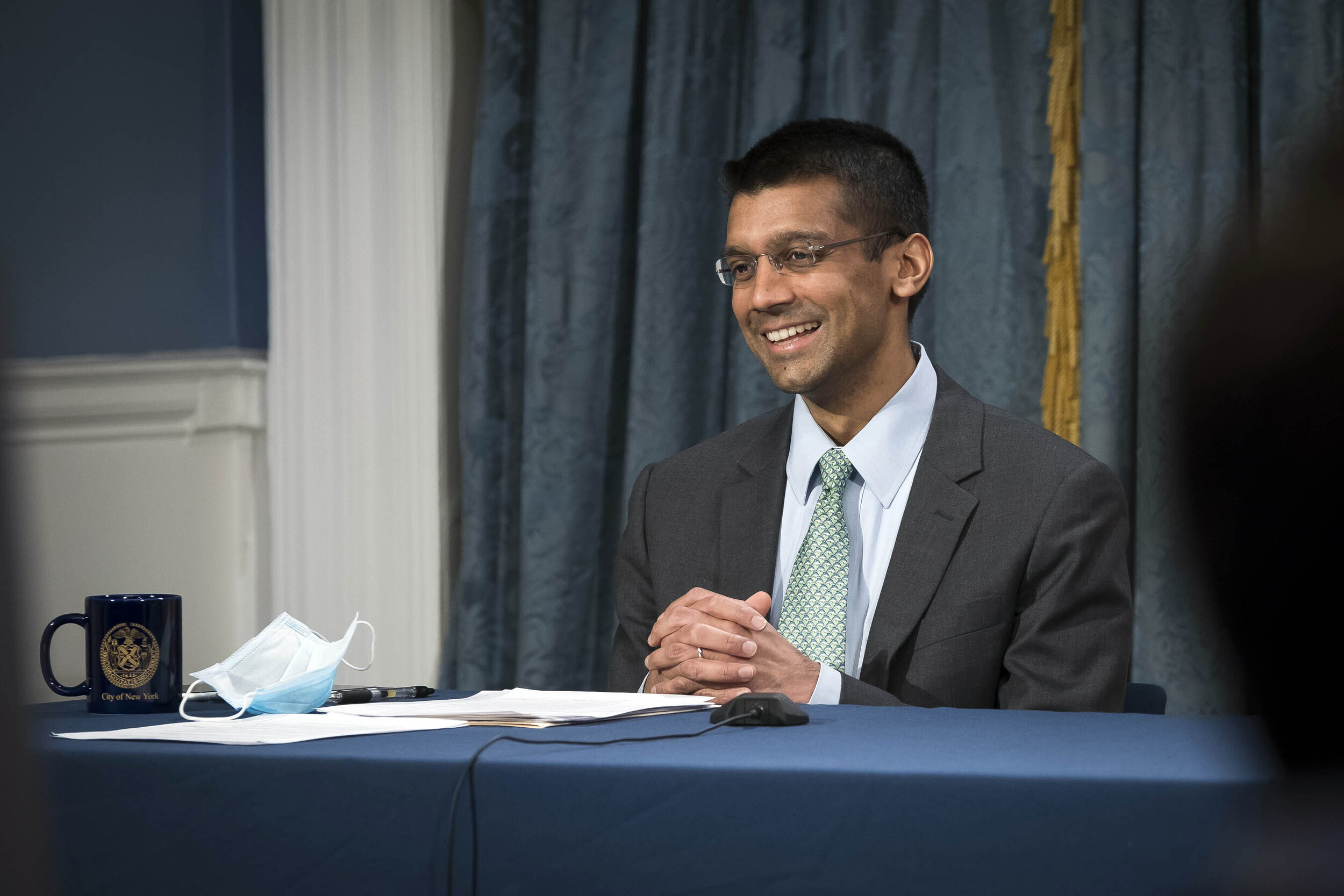NYC Health chief enlists Queens community boards in effort to build vaccine trust
/Dr. Dave Chokshi briefed members of the Queens Borough Board Monday. Photo via Mayor’s Office
By Rachel Vick
Health Commissioner Dr. Dave Chokshi enlisted Queens community board leaders in the effort to promote trust in new COVID-19 vaccines Monday, hours after a Glen Oaks nurse became the first person in the country to receive a dose outside of clinical trials.
Chokshi briefed the chairs and district managers of Queens’ 14 community boards, as well as Borough President Donovan Richards and a handful of councilmembers, about vaccine distribution in New York City, during a monthly meeting of the Queens Borough Board.
The city will prioritize distribution in 27 New York City neighborhoods hit hardest by COVID-19, including Corona and Jamaica, Chokshi said.
The boards can play an important role instilling faith in the preventive shots among Queens residents, he said.
“Along with our incredible cultural an ethnic diversity comes an incredible strength which we've seen time and time again,” Chokshi said. “I'm hoping that together, we can be the right messengers because I know how hard it is to maintain the diligence and vigilance we need.”
Chokshi, a Queens resident, briefed the board, on the plan to share the vaccine with medical workers and explained the safety of the Pfizer vaccine, which was delivered to five hospitals, including Long Island Jewish Medical Center, where a nurse received the first dose Monday morning. The vaccine will be delivered to another 39 hospitals by Wednesday, he said.
He said vaccine distribution at Queens hospitals is a particularly powerful moment after the borough’s medical centers emerged as the hardest hit facilities in the early days of the pandemic.
“I've been in Queens for seven years, just a few blocks away from Elmhurst Hospital, so along with all of you I have lived how tragic the last few months have been in too many ways for this community,” he said.
He said Queens residents must remain patient and vigilant while continuing “bread and butter” protective measures like wearing masks and maintaining social distance.
“We now have a light at the end of the tunnel with that vaccine, but that doesn't make the tunnel
any less perilous,” Chokshi said.
Queens Community Board 10 Chair Betty Braton suggested creating a fact sheet for board members to answer difficult questions from vaccine skeptics, particularly among people of color wary of the racist history of experimentation and negligence in American medicine.
Councilmember Adrienne Adams suggested that it would be helpful to include the fact that a Black woman, Dr. Kizzmekia Corbett, was instrumental in the development of the vaccine.
“For me, it made a lot of difference in the way I am presenting the messaging of the necessity of getting the vaccine,” Adams said.
Chokshi said the Department of Health and Mental Hygiene expects a new vaccine from Moderna to receive federal approval in the next week, in time for residents of nursing homes and long term care facilities to begin getting inoculated.
DOHMH also expects the vaccine to be publicly available by mid 2021, at which point it will be available wherever flu shots are administered — including community health centers, doctors offices and drug stores, Chokshi said.
The vaccine has not yet been approved for children under 16.




